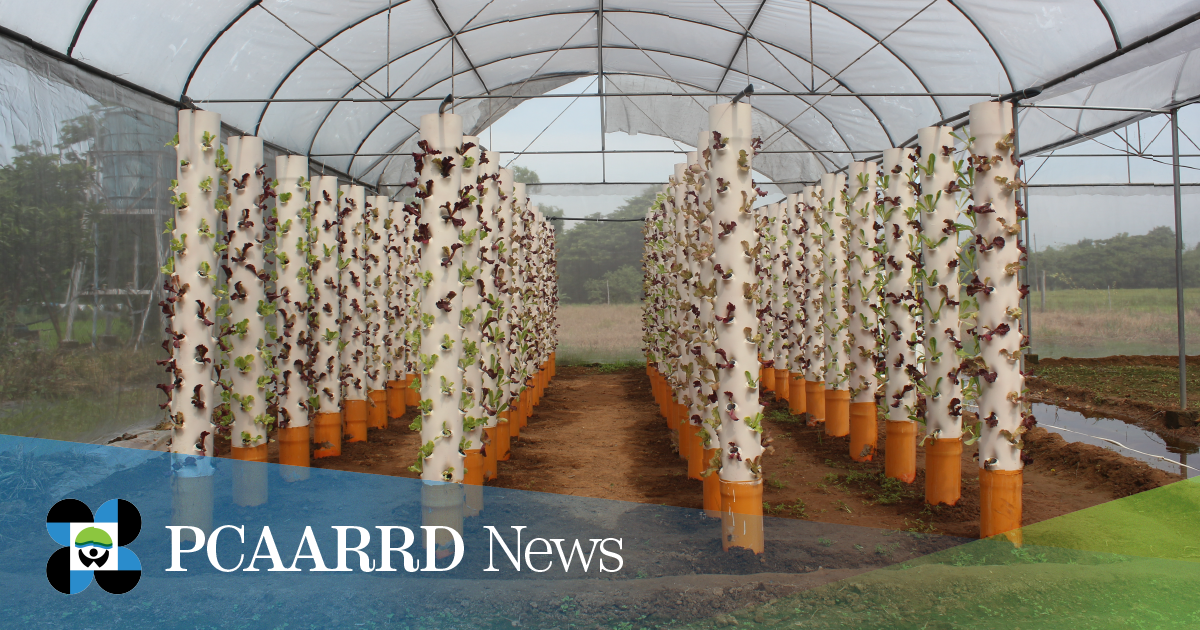Flooding during the rainy season can devastate crops. A way to address this challenge is by setting up solar-powered drip-irrigated tower gardens. This vertical farming system offers a sustainable and resilient solution, even during the rainy season.
The vertical farming system involves growing vegetables using solar-powered pump drip irrigation and tower garden technologies. This system can withstand rains and floods and enables communities to continue producing vegetables despite heavy rains, unlike in traditional land-based farming.
Tower gardens use hydroponics and introduce the vertical way of growing vegetables. It requires less space compared with conventional farming as leafy vegetables are planted in high vertical pots. It also uses an automated timer to irrigate the crops, thereby reducing time and labor.
Solar-powered drip-irrigated tower gardens have been successfully established in six areas across Nueva Ecija, Bulacan, Pampanga, and Tarlac through the project implemented by the Central Luzon State University (CLSU).
The established community gardens in these areas not only addressed immediate food needs during emergencies but also allowed multiple cropping cycles per year, particularly for fast-growing leafy vegetables.
CLSU project leader Marvin M. Cinense said that this technology can boost crop yield by up to 50% or more per unit area. By raising the plants above potential floodwaters, the tower garden can ensure that crops stay protected and continue to flourish even when the ground is submerged. Also, plants can be safe against soil-borne insect pests and diseases.
CLSU implemented this project in cooperation with the Bulacan Agricultural State College, Pampanga State Agricultural University, and Tarlac Agricultural University. The project was funded by the Philippine Council for Agriculture, Aquatic and Natural Resources Research and Development of the Department of Science and Technology (DOST-PCAARRD), and was monitored by DOST-PCAARRD’s Agricultural Resources Management Research Division.
As urban areas continue to expand and climate change increases the frequency of extreme weather events, such as heavy rains and flooding, innovative solutions like tower gardens will be essential for ensuring food security. This project highlights the potential of technology-driven farming methods to sustain urban communities even in the most challenging weather conditions.

